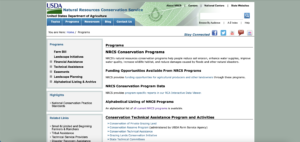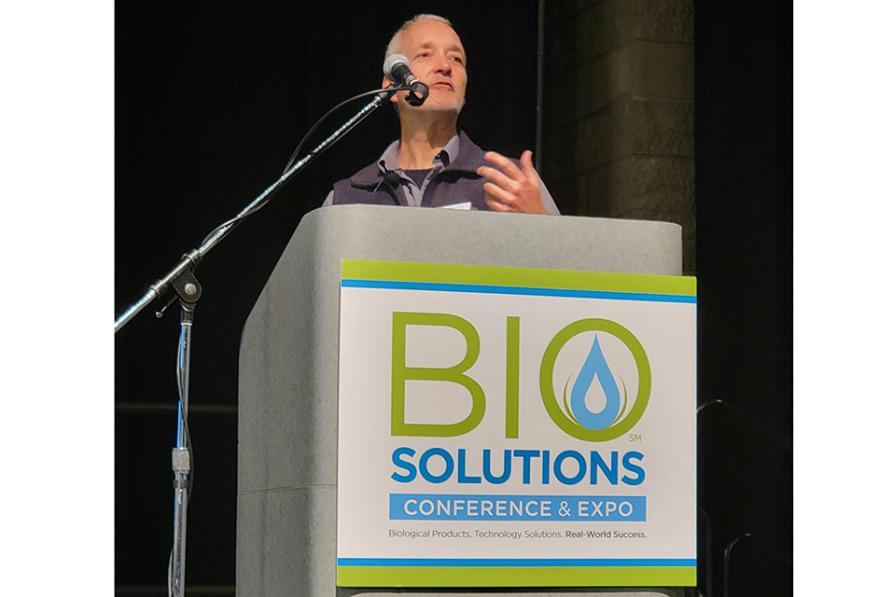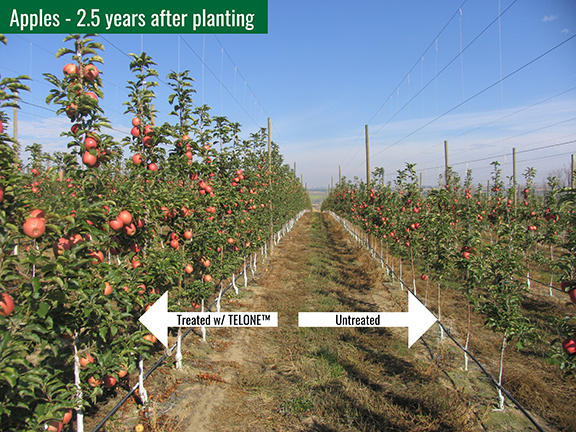3 Tips to Boost Your Farm’s Conservation Efforts
There’s a lot of expertise and financial help available if you want to leave a lighter ecological footprint. One of the most effective ways to access that help is to work with the Natural Resources Conservation Service (NRCS).
If you are researching how to go organic, the NRCS does not certify growers as organic. But it is one of many paths you can take to receive funding for the certification process, according to Bryan Lee, an Ohio State Resource Conservationist.
The certification process, which often takes three years to become certified by the USDA, can be expensive and difficult. The NRCS offers many conservation programs and funding opportunities to help them offset the costs.
Tip One: Learn the NRCS Website
Doing your research before trying anything is the quickest avenue to success. The NRCS offers many programs which can make their website look daunting.

The NRCS Programs Webpage.
There is the Environment Quality Incentives Program (EQIP), which helps fund growers in new conservation efforts. There is also the Conservation Stewardship Program (CSP) which gives growers a grant to increase their already existing conservation efforts. These programs are just two opportunities along with many other programs on the site.
On top of looking at the national NRCS site, it is also important to look at your state’s website. That’s because some programs are offered only in certain states — such as fig conservation incentives in California, says Brooke DeCubellis, Public Affairs Specialist at the USDA.
Once you take the time to review the website, you will find a wealth of knowledge, according to Angel Arehart, CSP Manager at the NRCS. This includes publications that go over the application process for programs step-by-step.
When you’re ready to send in your application (or even after approval), there is a multi-platform webpage that will help, Arehart says.
“We have Farmers.gov, which is an online self-service tool that allows growers and producers to access their application, educational materials, and business tools,” she says. “You can use a tablet or a phone [with this tool] to sign contracts and documents as well as request assistance by submitting questions.”
Tip Two: Work with A Local Planner
Every county has an NRCS District Conservationist or a conservation planner. They can help ensure your operation looks good before sending in your application.
“Your closest ally is going to be your local conservation planner, your NCRS District Conservationist, or whoever represents your county,” Arehart says. “We have someone assigned to every county in the nation to work with agricultural producers and growers.”
Because there are many programs in the agency, it can be difficult to know which ones suits your operation the best. What the NRCS representative will do is come out to your operation and conduct an assessment. They will then assist you with your conservation strategy.
“And it is that conservation plan that will help you decide which program is the best fit for your needs,” she says.
These conservationists will take the time to survey your grounds, look at what you grow, and discuss what your needs are financially. They will then help you decide what the best avenue for you to take to reach your goal to become organic certified.
Tip Three: Do Not Be Afraid to Apply
The final tip is to turn in that application. If you think it’s not worth applying due to the competition, you may be surprised at how often you’ll succeed in landing these grants.
While there is limited funding for grants within the programs, the NRCS compares your operation only to other similar-sized operations.
“Organic farmers are just competing in a small pool if you will,” says DeCubellis. “That is so they a have a better chance of receiving funding.”
Arehart urges you turn take the chance and turn in your application.
“One of my fears would be that small organic operations might think that they couldn’t be competitive in a sea of huge conventional operations, Arehart says. “To those people, I say there are ranking pools set aside where similar organic producers only compete with each other.”
Amongst all the fear of applying and confusion, it is important to know that the NRCS goal is to push for land conservation. They are always willing to help anyone with any questions or concerns they may have.
“The process does not have to be confusing,” DeCubellis says. “The NRCS is here to help whether you are at the beginning of your conservation journey or you are looking to build on your current conservation efforts.”










